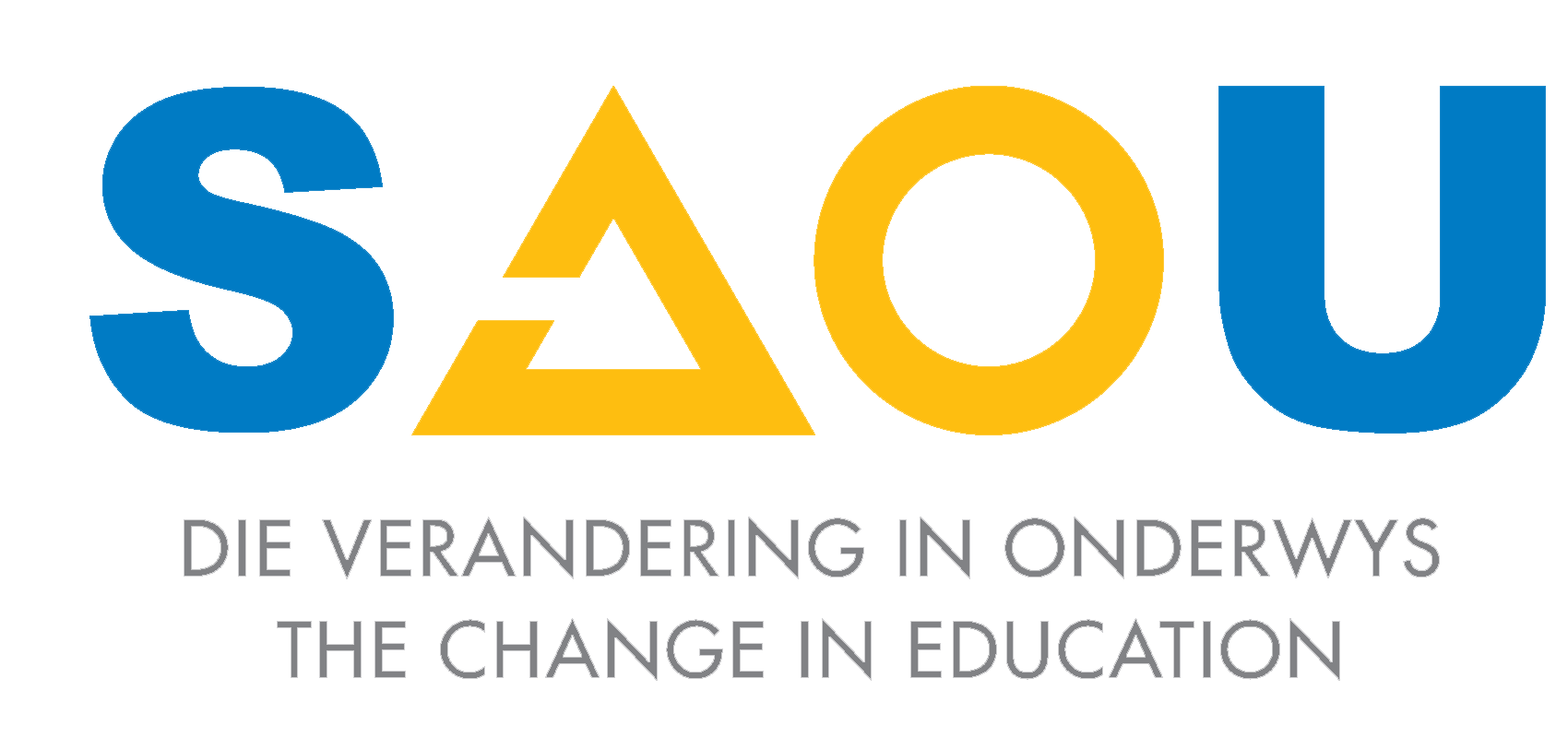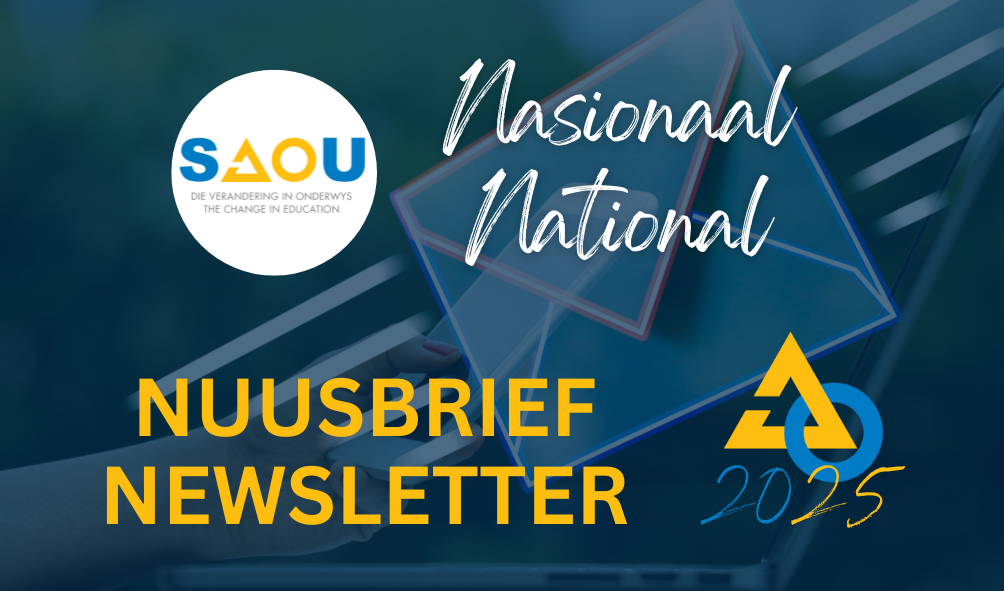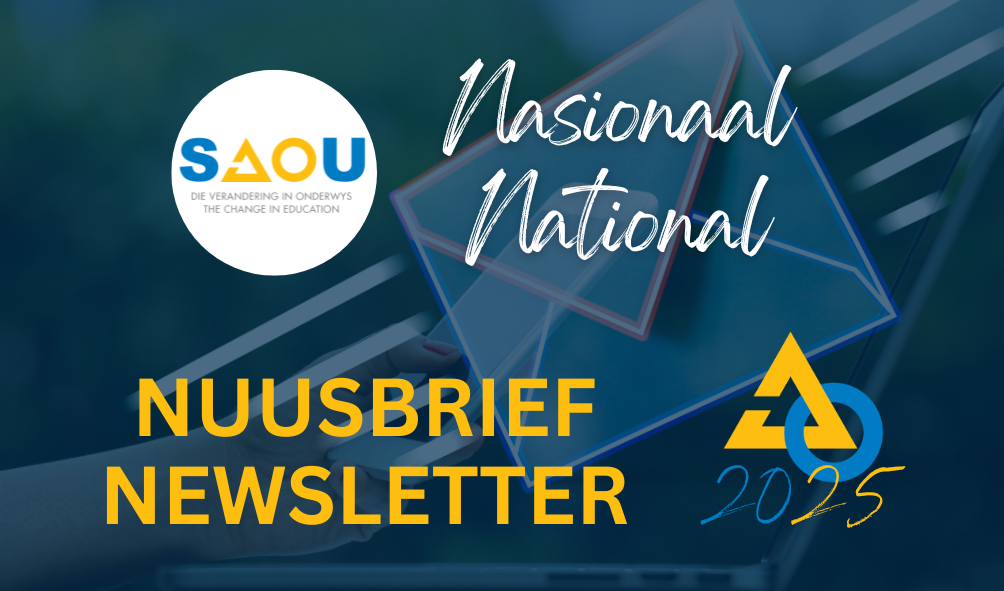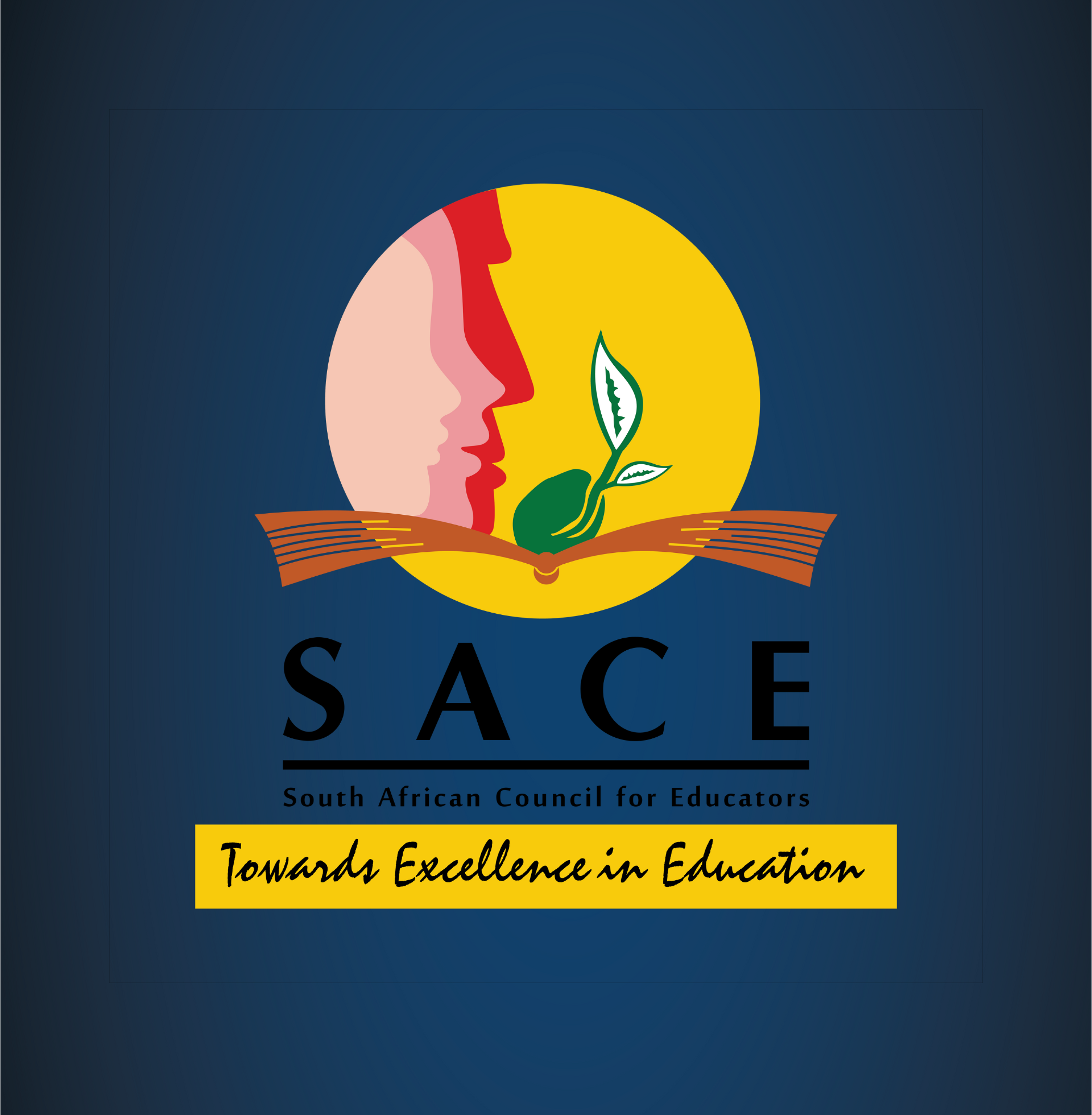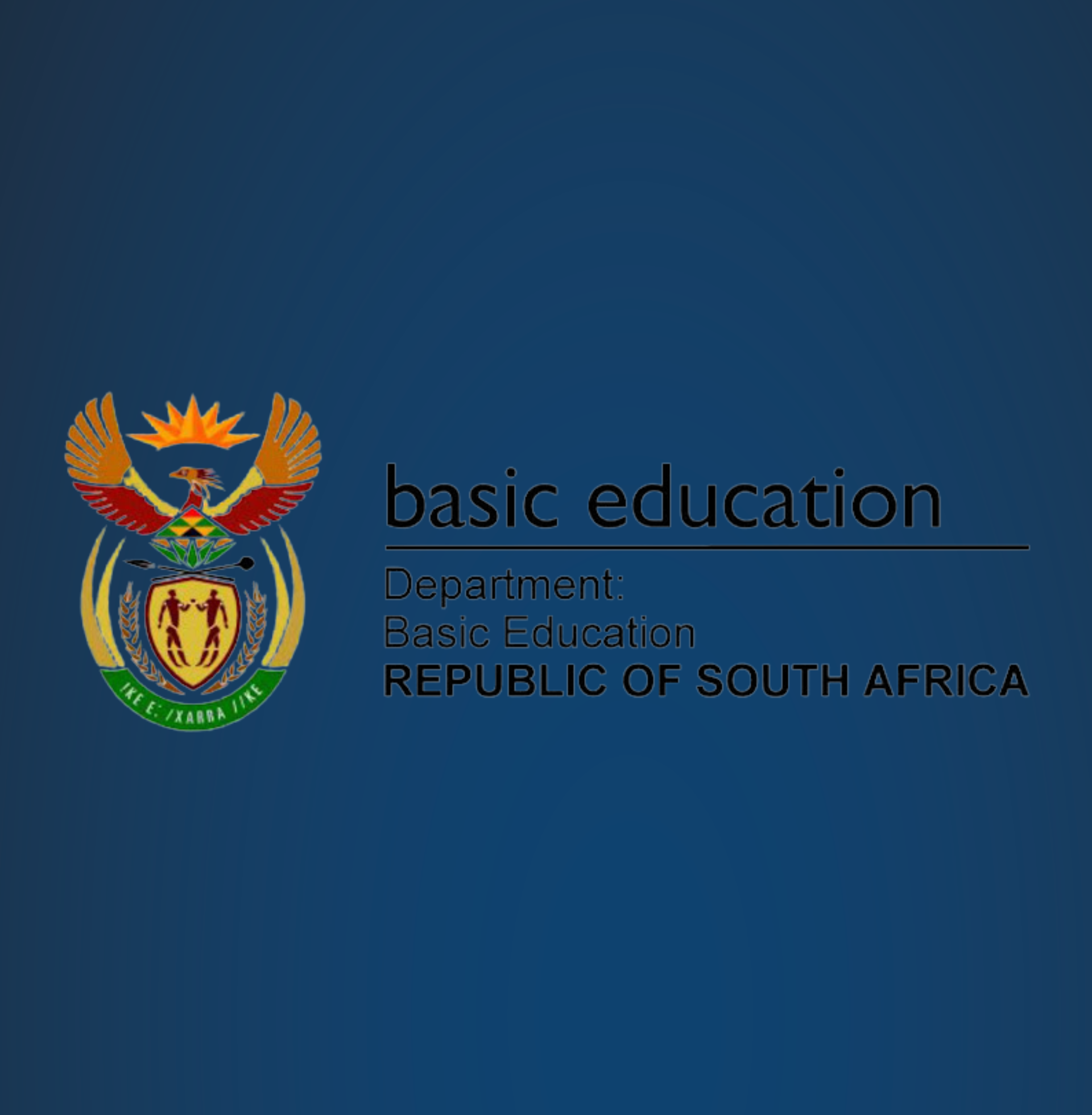
03/2024
UITSTAPPIES
Die beplanning van 'n skooluitstappie of -toer is gewoonlik baie opwindend vir die skool wat inisiatief neem om onderrig en leer vir hul leerders verder te neem as die klaskamer of skoolterrein. Alhoewel die beplanning van ʼn skooluitstappie of -toer eenvoudig lyk, is daar ʼn lys van moets en moenies en ʼngroot verantwoordelikheid wat op die skouers van elke rolspeler en organiseerder rus.
Die rol van ‘n onderwyser tydens ‘n skooluitstappie of -toer:
‘n Skoolaktiwiteit word geklassifiseer as enige opvoedkundige, kulturele, sport of sosiale aktiwiteit van die skool wat by die skool of op ʼn ander perseel gehou word. In die onderwys is die beginsel in loco parentis van toepassing op elke onderwyser. Hierdie regsterm verleen aan onderwysers ʼn plig soortgelyk aan dié van ouers. Dit beklemtoon hul verantwoordelikheid om die welstand en veiligheid van hul leerders te verseker. Indien die onvoorsiene tydens ʼn skooluitstappie of -toer plaasvind, wat lei tot die besering van ‘n leerder, kan opvoeders regtens aanspreeklik gehou word indien daar bewyse is dat die skool en/of onderwyser nalatig was in die nakoming van hul sorgsaamheidsplig. Bewerings van growwe nalatigheid van die skool en/of opvoeder se kant kan lei tot siviele- asook arbeidsregtelike-aksies.
Belangrike algemene bepalings waarop gelet moet word tydens die reël van ʼn skooluitstappie of -toer:
- Die toepaslike Nasionale Regulasies is die Regulasies vir Veiligheidsmaatreëls by openbare skole (gepubliseer in 2001 en gewysig in 2006), as bylae tot die Suid-Afrikaanse Skolewet van 1996 (klik hier). Alhoewel sommige provinsiale onderwysdepartemente die bepalings, soos vervat in die Regulasies, by wyse van ʼn provinsiale omsendskrywe verfyn, is die Regulasies nog steeds van toepassing en belangrik.
- Die Regulasies bevat die definisie van ʼn ‘’skoolaktiwiteit‘’ wat ook die reis na en vanaf die skool impliseer, vandaar die insluit van sekere reisreëlings in die Regulasies. Regulasie 8A(2) vervat die algemene verpligting in die Regulasies wat vereis dat leerders beskerm moet word. Regulasie 8A(3), (4), (5) en (6) bevat gedetailleerde bepalings wat na aspekte i.t.v. versekering en versekeraars verwys. ʼn Verdere belangrike insluiting in die Regulasies is die verpligting en verantwoordelikheid van ʼn onderwyser om te bepaal of ʼnleerder mediese behandeling benodig indien die ouers/voogde nie bereik kan word nie.
Skole moet die volgende protokol vir skooluitstappies of -toere in terme van die Regulasies volg:
- Voordat enige leerder vervoer word moet openbare skole in duplikaat aansoek doen vir goedkeuring om leerders te vervoer. Hierdie aansoek is onderhewig aan goedkeuring deur die provinsiale onderwysdepartement.
- Die Regulasies stipuleer die riglyne m.b.t. die organisering en administratiewe aspekte van ʼn skooluitstappie of -toer. Dit beklemtoon die belangrikheid dat die skool die skriftelike toestemming van ʼn leerder se ouers moet verkry vir hul deelname aan ʼn skoolaktiwiteit.
- Die Regulasies spreek die noodsaaklikheid aan om die veilige vervoer van leerders te verseker.
- Die Regulasies stipuleer verder toesig tydens leerders se deelname aan fisiese-aktiwiteite, wateraktiwiteite asook algehele toesig in die onderwysomgewing. Dit beperk die deelname van leerders aan fisiese aktiwiteite wat hul gesondheid in gevaar stel en deur ʼn mediese sertifikaat afgeraai word.
‘n Duplikaataansoek moet die volgende bevat:
- Die aansoekvorm wat in Bylae 1 van die Regulasies vervat word, moet in duplikaat voltooi word indien die skoolaktiwiteit die vervoer van leerders insluit.
- Voordat die beoogde skoolaktiwiteit plaasvind, moet die aansoek deur die provinsiale onderwys-departement goedgekeur word.
- 'n Afskrif van die goedgekeurde aansoekvorm moet aan die skool oorhandig word en die oorspronklike moet bewaar word die departement.
- 'n Openbare skool moet maatreëls tref om gedurende enige skoolaktiwiteit die veiligheid van leerders te verseker, wat insluit:
- versekering teen moontlike ongelukke, beserings, algemene mediese uitgawes, hospitalisasie en diefstal, na gelang van die beskikbaarheid van finansiering;
- die versekering, sover redelik moontlik, dat leerders ten alle tye onder die toesig van ʼn onderwyser is wat die leerders vergesel;
- die versoek van ouers of ander volwassenes om met leerdertoesig te help; en
- die versekering dat die opvoeder-leerder-verhouding nl. minstens een opvoeder, ouer of ander volwassene vir elke 20 leerders sal wees vir laerskole of een opvoeder, ouer of ander volwassene vir elke 30 leerders sal wees vir hoërskole. Sowel as die versekering dat geslag in die volwassene-leerder verhouding in ag geneem word.
- Volgens Regulasie (8)D moet ʼn voertuig wat vir die vervoer van leerders gebruik word, bewys van versekering sowel as padwaardigheid-sertifikate hê. Die drywers moet geldige bestuurderslisensies besit asook ʼnProfessionele Bestuurspermit (sg. PrDP).
Die volgende moet voorsien word deur 'n eienaar/sub-kontrakteur of die eienaar van ʼn gekontrakteerde voertuig:
Hul moet padwaardigheidsertifikate, versekering en geldige bestuurslisensies besit. Elke voertuig moet ook ʼn brandblusser hê. Daar mag verder vereis word dat daar ʼn aflos-drywer en ʼn ondersteuningstelsel in plek moet wees. Die skoolhoof, verantwoordelike onderwyser of ʼnlid van die skool se beheerliggaam moet tussenbeide tree indien daar enige twyfel ontstaan oor die padwaardigheid van ʼn voertuig.
Hoe om te werk te gaan in die geval van Provinsiale regulasies?
Dit is belangrik om in ag te neem dat sommige provinsies oor hul eie verfynde administratiewe regulasies met betrekking tot skooluitstappies- en toere beskik, soos byvoorbeeld:
- In KwaZulu-Natal, word die Nasionale Regulasies gevolg en moet ʼn aansoek ingedien word by die Kringbestuurder vir goedkeuring. In die geval van uitstappies of toere na die buiteland moet die aansoek goedgekeur word deur beide die Kringbestuurder en die Hoof van Onderwys (klik hier).
- In Mpumalanga, word die Nasionale Regulasies gevolg, maar elke distrik beskik oor hul eie interne prosesse rakende die administratiewe aspekte vir so ‘n aansoek. Die probleem wat hier kan ontstaan is dat die interne prosesse nie gereguleer word deur provinsiale omsendskrywes nie. Die voorstel is dat skole streng volgens die Nasionale Regulasies moet optree. Alle kommunikasie rakende interne administratiewe aspekte moet met die Kringbestuurder asook die Distrikskantoor gedeel word.
- In Noordwes, word die Nasionale Regulasies gevolg, maar met aparte aansoekvorms vir uitstappies of toere wat binne die dorp of stad van die betrokke skool gaan plaasvind. Aparte aansoekvorms moet ook voltooi word vir uitstappies of toere wat binne die provinsie maar in ʼn ander distrik gaan plaasvind sowel as uitstappies of toere wat buite die provinsie gaan plaasvind. Daar is ‘n verpligting op skole om hul aansoeke 3 maande voor die aanvang van die uitstappie of toer in te dien. Geen uitstappies of toere mag gedurende die laaste kwartaal van ʼn jaar plaasvind nie, behalwe in die geval van Spesiale skole. Verskillende Departementele beamptes is aangewys om verskeie aansoeke goed te keur:
- in die geval van ʼn uitstappie of toer binne die dorp of stad waarbinne die skool geleë is, sal die Kringbestuurder die aansoek goedkeur (klik hier);
- in die geval van uitstappies of toere buite ʼn dorp of stad waarbinne die skool geleë is, sal die Kringkoördineerder die aansoek goedkeur (klik hier);
- in die geval van uitstappies of toere buite die distrik waarbinne die skool geleë is, sal die Distriksdirekteur die aansoek goedkeur (klik hier); en
- in die geval van uitstappies of toere buite die provinsie moet die Hoofdirekteur, die Adjunk Direkteur Generaal asook die Hoof van Onderwys die aansoek goedkeur (klik hier).
- In die Noord-Kaap word die Nasionale Regulasies gevolg en die aansoek moet ingedien en toegestaan word deur die Direkteur van Distriksaangeleenthede.
- In
Gauteng volg die Onderwysdepartement ʼndeeglik opgestelde provinsiale regulasie wat die plaaslike- en internasionale vervoer van leerders reguleer (klik hier). 'n Eendag uitstappie of toer word slegs deur sekere artikels en subartikels van die regulasies gereguleer. Hierdie regulasie spreek onder andere spesifiek die volgende aspekte ook aan:
- Onbillike diskriminasie, onbillike uitsluiting van leerders om deel te neem aan skooluitstappies of -toere;
- Prosedures oor die seleksie van leerders om op ʼn skooluitstappie of -toer te gaan;
- Dat elke skool ‘n vervoerbeleid moet opstel en die kostes verbonde aan die beplande skooluitstappies of -toere moet in die skool se begroting reflekteer;
- ʼn Aansoek moet binne 3 maande voor die aanvang van die skooluitstappie of -toer ingedien word by die Distriksdirekteur van die relevante Distrikskantoor;
- Indien ʼn skool nie aan die 3 maande verpligte tydperk kan voldoen nie, kan die Distriksdirekteur toestemming verleen vir ʼnkorter tydperk indien daar spesiale omstandighede ter sprake is;
- Skooluitstappies of -toere wat plaasvind binne die provinsie word goedgekeur deur die Distriksdirekteur. Uitstappies of toere wat buite die provinsie plaasvind moet deur die Hoof van Onderwys goedgekeur word. Internasionale uitstappies of toere moet goedgekeur word deur die Minister van Onderwys, maar laasgenoemde kan sy/haar besluit, met voldoende redes, herroep of opskort; en
- Die regulasies skryf verder ‘n tydraamwerk van 30 dae voor waarbinne die Departement skriftelike terugvoer aan skole moet verleen. Dit beskik ook oor ʼn appèlprosedure wat bepaal dat skole binne 7 dae kan appelleer teen ʼn afgekeurde aansoek.
- In Limpopo, word skole in Omsendskrywe 178 van 2022 verplig om toe te sien dat geen skooluitstappie of -toer na 30 September van elke jaar sal plaasvind nie (klik hier). In uitsonderlike gevalle kan skole 'n versoek met goeie redes deur die Kringbestuurder aan die Hoof van Onderwys rig.
- In die
Wes-Kaap, word omsendskrywe 0046-2013 gevolg wat skoolaktiwiteite in 3 kategorieë verdeel en elke kategorie beskik oor sy eie reëls, regulasies en verwagtings (klik hier):
- Kategorie 1 reguleer standaard kurrikulêre en ko-kurrikulêre aktiwiteite. Dit is normale skoolaktiwiteite soos voorgeskryf in die beplande kurrikulum, en/of deel is van die normale skoolprogram.
- Kategorie 2 reguleer parallelle, maar vrywillige verrykings-geleenthede . Dit is ʼn verskeidenheid aktiwiteite wat gemik is op verryking en/of uitbreiding van die kurrikulum.
- Kategorie 3 reguleer toere, kampe en uitstappies:
- Vir die doeleindes van hierdie onderwerp is kategorie 3 belangrik aangesien hierdie aktiwiteite buite die skoolterrein plaasvind;
- Hierdie kategorie verduidelik hoe die kostes verbonde aan so 'n aktiwiteit gereguleer moet word;
- Aan wie die aansoek gerig moet word vir goedkeuring nadat die skoolbeheerliggaam die aansoek goedgekeur het;
- Dit verwys na spesifieke vereistes voordat ʼn uitstappie of toer kan plaasvind;
- Dit sluit die pligte, verantwoordelikhede en verwagtings van onderwysers wat in beheer is van die uitstappies of toere in;
- Die toesig oor leerders tydens ‘n uitstappie of toer; en
- Regulering van die vervoer en die opstel en byhou van die lêer wat die dokumentasie wat verband hou met vervoer bevat.
- Die
Vrystaat en die
Oos-Kaap volg die Nasionale Regulasies.
Ten slotte
- Skooluitstappies en -toere hou inherente risiko's in wat 'n omvattende begrip van onderwysers vereis. Die potensiaal vir ongelukke wat tydens skooluitstappies en -toere kan plaasvind en die gevolge van onvoldoende veiligheidsmaatreëls beklemtoon die noodsaaklikheid vir onderwysers en skole om die Regulasies vir Veiligheidsmaatreëls (soos per provinsiale stelsels uiteengesit) konstant toe te pas. Onderwysers moet deeglik bewus wees van wat die in loco parentis- beginsel behels en sodoende die regte prosesse en optrede toe te pas.
- Volg asseblief die volgende skakel om na ons bemagtigingsessie oor hierdie onderwerp te kyk:
https://youtu.be/U785mwYGpLQ
2024/12/05
EXCURSIONS
Planning a school trip or tour is usually very exciting for the school that takes the initiative to take teaching and learning for their learners much further than just in the classroom or even the school grounds. Although the planning of such an excursion or tour may seem obvious, there is a list of dos and don’ts of school trips or tours, as well as many responsibilities that rest on each role player.
The role of an educator during a school trip or tour:
Any educational, cultural, sports or social activity of the school that is held at the school or on other premises is classified as a school activity. In education, the in loco parentis principle applies to every educator. This legal term gives educators a duty similar to that of parents. This emphasizes their responsibility to ensure the well-being and safety of their learners. If the unforeseen happens during a school trip or tour that leads to the injury of a learner, educators can be held legally liable if there is evidence that the school and/or educator was negligent in fulfilling the duty of care that rests on them. Allegations of gross negligence on the part of the school and/or educator can lead to civil and labour law actions.
General important provisions that must be taken into account when organizing a school trip or tour:
- The applicable National Regulations are the Regulations for Safety Measures at Public Schools (published in 2001 and amended in 2006), as an appendix to the South African Schools Act of 1996 (click here). Although there are provincial education departments that implement the provisions contained in the Regulations by way of a provincial circular, the Regulations are still applicable and important;.
- The Regulations contain a definition of "school activity" which also implies travel to and from school, hence the inclusion of certain travel arrangements in the Regulations. There is a general obligation in the Regulations that requires learners to be protected, namely Regulation 8A(2). The Regulations contain detailed provisions that refer to insurance and insurers namely Regulation 8A (3), (4), (5) and (6). A further important inclusion in the Regulations is the obligation on an educator to determine whether a learner needs medical treatment if the parents cannot be reached.
Schools must follow the following protocol for school trips or tours in terms of the Regulations:
- Public schools must submit a duplicate application for the transport of learners which is subject to approval by a designated official representing the provincial education department prior to the commencement of the transport.
- The Regulations stipulate the guidelines regarding the organization and administrative aspects of a school trip or tour and emphasize the importance that the school must obtain the written consent of a learner's parents for their participation in a school activity.
- The Regulations address the need to ensure the safe transport of learners.
- The Regulations further stipulate learners' participation in physical activities, water activities as well as supervision in the educational environment. This limits the participation of learners in physical activities that endanger their health and which are advised against by a medical certificate.
A duplicate application must contain the following:
- The application form envisaged in Annexure 1 of the Regulations must be completed in duplicate if the school activity involves the transport of learners.
- The application must be approved by the provincial education department, before such school activity takes place.
- A copy of the approved application form must be handed over to the school and the original must be kept by the official representing the provincial education department.
- A public school must take measures to ensure the safety of learners during any school activity, which include:
- insurance against possible accidents, injuries, general medical expenses, hospitalization and theft, depending on the availability of financing;
- the assurance, as far as reasonably possible, that learners are at all times under the supervision of an educator who accompanies the learners;
- requesting parents or other adults to help with learner supervision; and
- the assurance that the educator-learner ratio will be at least one educator, parent or other adult for every 20 learners for primary schools, whether there will be one educator, parent or other adult for every 30 learners for high schools; and ensuring that gender is taken into account in the adult-learner relationship.
- According to Regulation (8)D, a vehicle used for the transport of learners must have proof of insurance as well as roadworthiness certificates and drivers must hold valid driver's licences as well as a Professional Driving Permit (so-called PrDP).
The following must be provided by an owner or sub-contractor or the owner of a contracted vehicle:
They must possess roadworthiness certificates, insurance and valid driving licences. Every vehicle must also have a fire extinguisher. It may also be required that there be a back-up driver and a support system. The principal, responsible educator or a member of the school's governing body must intervene if there is any doubt about the roadworthiness of a vehicle.
How to proceed in the case of Provincial regulations?
Attention must be paid to the fact that some provinces have their own refined administrative regulations in relation to school trips and tours, such as for example:
- In KwaZulu Natal, the National Regulations are followed and an application must be submitted to the Circuit Manager for approval, but in the case of trips or tours abroad, the application must be approved by both the Circuit Manager and the Head of Education (click here).
- In Mpumalanga, the National Regulations are followed, however each district has their own internal processes regarding the administrative aspects for such an application. The problem that may be encountered here is that these internal processes are not regulated by a provincial circular. The proposal is that schools must act strictly according to the National Regulations and all communication must be shared with the Circuit Manager as well as the District Office.
- In the North West, the National Regulations are followed, however with separate application forms for trips or tours that will take place within the town or city of the school in question, for trips or tours that will take place in another district within the province and for trips or tours that will take place outside the province. There is an obligation on schools to submit their applications 3 months before the start of the trip or tour and that no trip or tour may take place during the last quarter of a year, except in the case of Special schools. Different Departmental officers are tasked with approving applications:
- in the case of a trip or tour within the town or city within which the school is located, the Circuit Manager will approve the application (click here);
- in the case of trips or tours outside a town or city within which the school is located, the Circuit Coordinator will approve the application (click here);
- in the case of trips or tours outside the district within which the school is located, the District Director will approve the application (click here); and
- in the case of trips or tours outside the province, the Chief Director, the Deputy Director General as well as the Head of Education must approve the application (click here);
- In the Northern Cape, the National Regulations are followed and the application must be submitted and approved by the Chief Director of District Operations.
- In Gauteng, the Department of Education follows a carefully drafted provincial regulation that regulates the local and international transport of learners (click here). A one-day trip or tour is only regulated by certain sections and subsections of the regulations. Among other things, this regulation specifically addresses the following aspects:
- unfair discrimination, unfair exclusion of learners from participating in school trips or tours;
- procedures regarding the selection of learners to go on a school trip or tour;
- that each school must draw up a transport policy and reflect the costs associated with the planned school trips or tours in the school's budget;
- an application must be submitted to the District Director of the relevant District Office within 3 months before the start of the school trip or tour;
- If a school cannot comply with the 3 month mandatory period, the District Director can grant permission for a shorter period if there are special circumstances present;
- School trips or tours that take place within the province are approved by the District Director. Trips or tours that take place outside the province must be approved by the Head of Education. International trips or tours must be approved by the Minister of Education, but the latter can revoke or suspend his/her decision with sufficient reasons;
- The regulations further prescribe a time frame of 30 days within which the Department must provide written feedback to schools and also have an appeal procedure which states that schools can appeal against a rejected application within 7 days.
- In Limpopo, schools are obligated in terms of circular 178 of 2022 to ensure that no school trip or tour will take place after 30 September of each year (click here). In exceptional cases, schools can make a request with good reasons through the District Manager to the Head of Education.
- .In the Western Cape, circular 0046-2013 is followed which divides school activities into 3 categories and each category has its own rules, arrangements and expectations (click here):
- Category 1 regulates standard curricular and co-curricular activities. These are normal school activities as prescribed in the planned curriculum, and/or are part of the normal school programme.
- Category 2 regulates parallel but voluntary enrichment exercises. It is a variety of activities aimed to enrich and/or expand the curriculum.
- Category 3 regulates tours, camps and trips:
- For the purposes of this topic, category 3 is important as these activities take place outside the school grounds;
- This category explains how the costs associated with such an activity must be regulated;
- To whom the application must be addressed for approval after the school governing body has approved the application;
- Refer to specific requirements before a trip or tour can take place;
- Duties, responsibilities and expectations of educators in charge of the trips or tours;
- Supervision of learners during a trip or tour;
- Transport and the preparation and maintenance of the file regulating the transport documents.
- The Free State and Eastern Cape follow the National Regulations.
In conclusion
- School trips and tours carry inherent risks that require a comprehensive understanding by educators. The potential for accidents that can occur on school trips and tours and the consequences of inadequate safety measures highlight the need for educators and schools to implement the Regulations for Safety Measures at Public Schools either directly or by way of more refined provincial circulars and/or regulations to be understood and applied under the banner of the in loco parentis principle.
- Please follow the following link to watch our training session on this subject: https://youtu.be/U785mwYGpLQ



